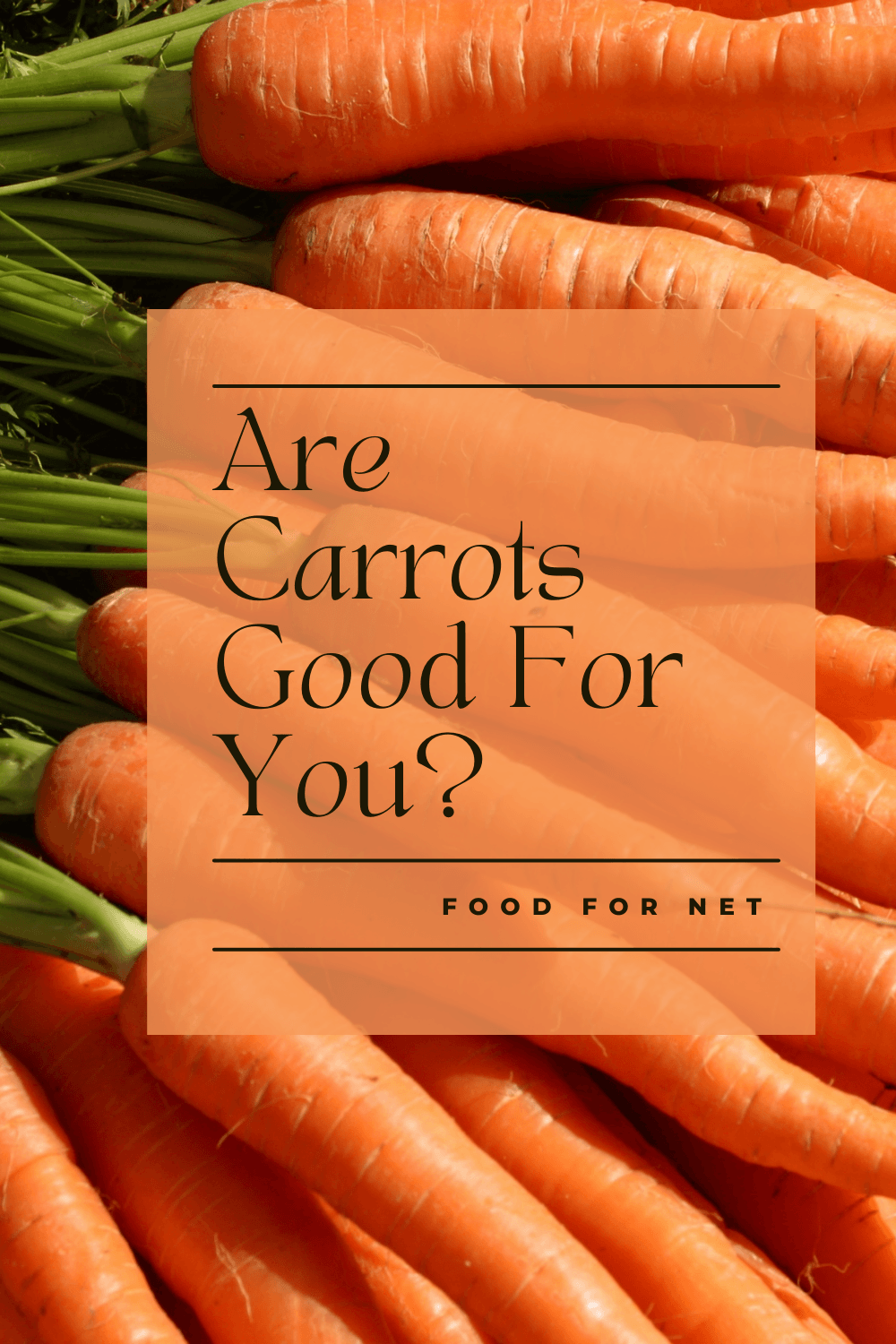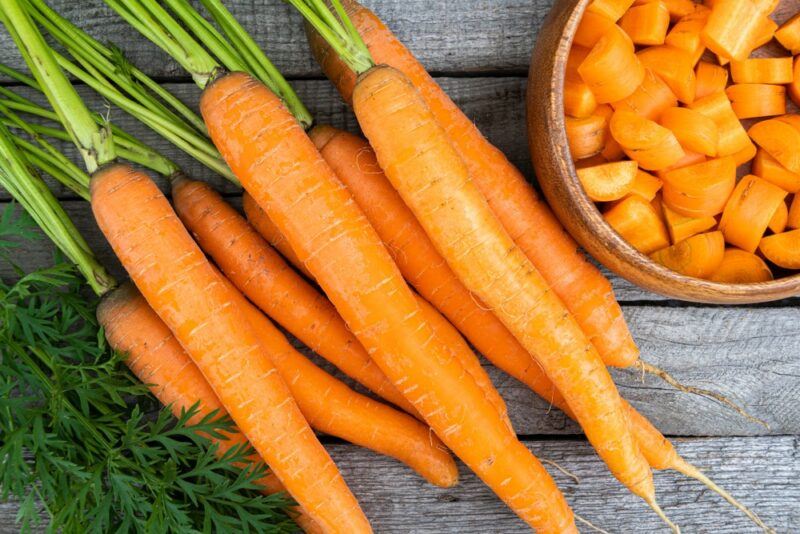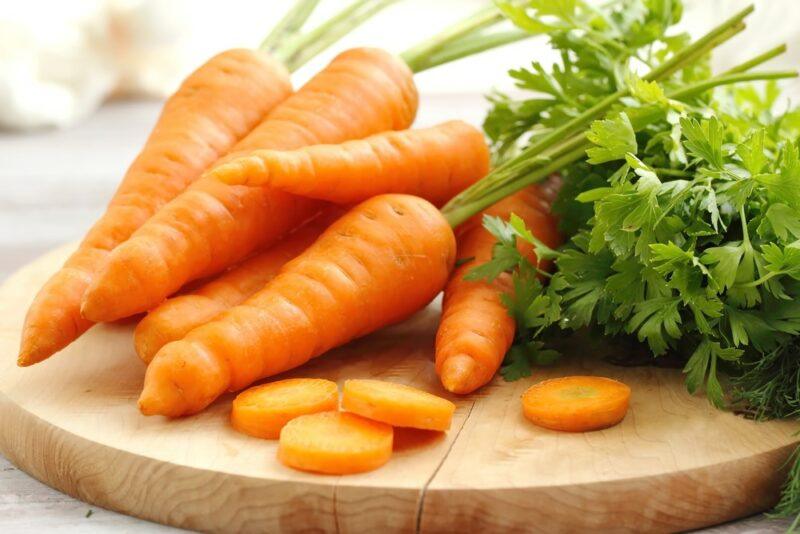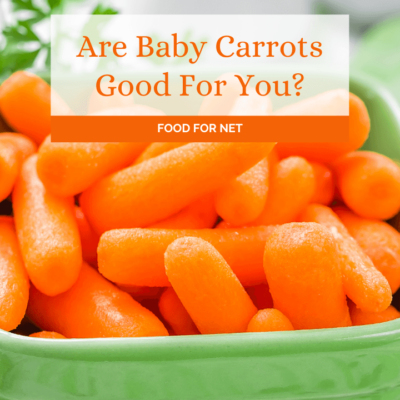
Carrots are a popular root vegetable, one that we often serve as part of a meal, grated in a salad, or even eat as a snack. These days, orange carrots are the most common type, but there are many other colors as well, including purple, yellow, white, and even red. Flavors vary somewhat, but most versions have a slightly sweet flavor and perhaps some earthiness. To continue on with our recent theme, we need to ask, are carrots good for you?
The obvious answer here is yes. Carrots aren’t particularly controversial and most aspects of carrot nutrition are already well-known. Ingredients like coconut oil, red meat, bacon, and eggs generate much more debate than carrots ever will.
Even so, it’s worth talking about the benefits and risks of carrots – because every type of food has its own quirks. Understanding what you’re eating and what it offers is easily the most powerful way to stay healthy.
Besides, carrots are actually much more interesting than you might assume.
Are Carrots Good For You?
Carrot Nutrition

Let’s begin with the nutrients you find in carrots. This might sound boring, but hey, nutrients are the main reason that we’re eating food. For a 100 gram serving size (roughly 2 small carrots), you’re looking at the following nutrient profile:
- Calories: 41
- Carbs: 9.6 grams
- Fiber: 2.8 grams
- Sugars: 4.7 grams
- Fat: 0.2 grams
- Protein: 0.9 grams
- Vitamin A: 334% of your daily intake
- Vitamin K: 16% of your daily intake
- Potassium: 9% of your daily intake
- Vitamin B6: 7% of your daily intake
- Manganese: 7% of your daily intake
- Folate: 5% of your daily intake
Other interesting nutrients include niacin (vitamin B3), zinc, copper, iron, and calcium. There are lower levels of these ones, but the nutrients still contribute to your daily intake. Remember, you need to hit your daily targets for vitamins and minerals to stay healthy and reduce your risk of disease.
Not surprisingly, the vitamin A is the standout nutrient here. Technically though, you’re getting provitamin A (also known as beta carotene), which the body then converts into vitamin A. You still get plenty of vitamin A from the beta carotene, so the distinction isn’t a big deal.
Benefits Of Carrots

Fantastic For Your Eye Health
There’s this old saying that carrots help you to see in the dark. This isn’t true at all, but the saying points to one important fact, that carrots can help with your eyes, protecting you against age-related macular degeneration (a type of vision loss that affects seniors).
The effect partly comes from the plant-based compounds present, including beta carotene, and lutein.
There’s even a link between carrots and eyesight, but not the one you’d expect. In particular, the beta carotene in carrots helps to combat vitamin A deficiency, and vitamin A deficiency can (in some cases) lead to an eye disease called xerophthalmia.
Xerophthalmia can make it difficult to see when there isn’t much light. So, in that sense, carrots might make you see better.
But, if you’re already getting enough vitamin A, then carrots won’t improve your eyesight. Sorry.
A Source Of Plant-Based Compounds
Carrots are also an easy way to boost your antioxidant intake. This effect partly comes from the beta carotene. Not only does this provitamin have antioxidant properties, but you’re also getting a lot of it in carrots.
There are other antioxidants as well, including lutein, lycopene, and plenty more. Purple carrots and some other varieties even contain anthocyanins, which are particularly powerful.
Antioxidants are famous for their ability to fight oxidation. Specifically, they reduce oxidative damage from free radicals. By doing so, they may reduce the risk of various diseases and keep us living longer.
That’s not all. Plant-based compounds, including antioxidants, all have a broad array of effects throughout our bodies. For example, carotenoids may play a role in decreasing cancer risk, while lutein helps with your eye health.
Antioxidants help to decrease inflammation as well. By doing so, they may lower the risk of some inflammation-related diseases, like rheumatoid arthritis and asthma.
A Decent Source Of Fiber
You’ve heard about the benefits of fiber, right? This macronutrient is essential for our digestion. It also keeps our blood sugar levels in check and can help to decrease cholesterol.
Yet, while fiber is critical, many of us aren’t getting enough. Carrots are one way to boost your fiber intake, as you get roughly 2 grams of fiber in a medium to large carrot. This is pretty good, given that you can simply eat carrots raw, use them in a salad, or add them to many meals.
That’s not all. Carrots contain an interesting soluble fiber called pectin. This can act as food for your gut bacteria, while also slowing down your sugar digestion. Both effects are important for your health.
They’re Low In Fat And Calories
Like many other vegetables, carrots are naturally low in fat and calories. A medium carrot just contains 25 calories and 0.1 grams of fat. There’s not even that much sugar present either, just 3 grams.
The low amount of fat and calories, coupled with the high fiber content, makes carrots an exceptional snack when you’re trying to lose weight. You can eat carrots as often as you like without worrying about your waistline.
Combining carrot sticks with a dip like hummus is even more powerful, as this gives you an easy snack that’s low in calories and can keep you going until your next meal.
How Carrots Could Be Harmful

Can Make Your Skin Orange
Eating large numbers of carrots has an unusual side effect – your skin turns orange. This happens because of the beta carotene. When there’s too much of it in your bloodstream, the compound ends up influencing your skin color.
This isn’t as shocking as it sounds, as beta carotene is a pigment molecule. The same effect can happen with other beta carotene rich foods, like sweet potatoes and pumpkins.
Thankfully, this doesn’t happen with normal carrot consumption. Some authors suggest that it takes between 3 and 10 carrots daily for a few weeks before you start to see the effect.
The condition, called carotenemia, isn’t dangerous on its own and can be easily reversed by dropping beta carotene intake down again.
They Contain A Decent Number Of Carbs
Carrots are somewhat starchy, so they contain more carbs than you might expect. A medium carrot, for example, contains almost 6 grams of carbs, and only roughly 2 grams come from fiber.
As such, carrots are relatively high in net carbs.
The carb content is high enough that keto dieters need to be cautious with carrots. You can still include carrots on a keto diet, but you’d need to plan carefully and keep your serving size low.
Raw Carrots Can Be Difficult To Digest
It’s easy to assume that raw vegetables are healthier than cooked ones, as vegetables lose some of their nutrients when they are cooked. Despite this, raw vegetables are sometimes a poor choice, as they can be more difficult to digest.
Some people even experience strong side effects from eating raw carrots, like gas or stomach cramps. These side effects might occur even if you don’t have a digestive issue, like irritable bowel syndrome.
If you do get side effects from carrots, try cooking them instead of eating them raw. Cooking breaks down some of the fiber, making the carrots easier to digest. You’re still getting plenty of nutrients from the carrots either way.
Do Carrots Lead To Vitamin A Toxicity?

Vitamin A is an important nutrient. Yet, like many other nutrients, too much of it can cause significant harm. You can even end up with vitamin A toxicity, which leads to symptoms like nausea, vomiting, headaches, and dizziness.
Carrots are high in vitamin A, so they could lead to toxicity, right?
As it turns out, that’s not really the case. Vitamin A toxicity is specifically associated with consuming too much preformed vitamin A (as in, vitamin A itself, not a provitamin like beta carotene).
After all, if there’s a lot of vitamin A in your system, your body won’t convert the beta carotene into more vitamin A. How would that help matters?
Your skin might still end up with an orange tint from the beta carotene, but that’s not a dangerous outcome.
Are Organic Carrots Healthier?
Organic carrots can be a better choice for the environment. Buying them can often be a way to support small local farms as well.
However, there isn’t a dramatic health difference. Organic and conventionally grown carrots tend to have similar amounts of nutrients, carotenoids, and antioxidants.
The main difference is that conventionally grown carrots often have some pesticide residue, while organically grown carrots don’t.
Still, when it comes to carrots, the levels of pesticides aren’t high. They’re well below legal thresholds and carrots don’t even feature on the ‘Dirty Dozen’ list of high pesticide foods.
Even so, plenty of people are worried about the pesticides. Despite all the testing, there’s still a lot we don’t know, including how long-term low-grade exposure to pesticides affects our health. Perhaps the pesticides are completely safe or perhaps there are issues we’re yet to learn about.
If you are concerned, then try switching to organic carrots. You could also grow your own. Carrots are easy to grow once you get used to them – and there’s little better than freshly harvested vegetables straight from your garden.
Carrots Versus Carrot Juice

When made well, carrot juice is simply juice made from carrots, with few added ingredients. As such, it offers many of the same features as fresh carrots, including potassium, vitamin C, beta carotene, and antioxidants.
Carrot juice might even be an easier way to get some of these compounds, as drinking carrot juice is easier and faster than eating whole carrots. In fact, you get the nutrients from multiple carrots in a single glass of juice.
However, there are two main issues.
The first is how carrot juice lacks fiber – and fiber really is important for your health. You can get fiber in plenty of other places, of course, but still, most of us need much more fiber than we’re getting.
The other issue is overdoing it, particularly with the beta-carotene and carbs. To get around this, you might have carrot juice every so often, rather than as a daily tonic.
Also – what about baby carrots?
What About Purple Carrots?
While orange carrots are the most common type, there are other colors of carrots out there too – including purple ones. There are many varieties of these carrots. Some of them are purple on the outside, while the center of the carrot remains orange. Other types are a deep purple color all the way through.
Unfortunately, the purple color quickly leaches out of the carrot when you cook it, coloring other ingredients. Using purple carrots raw instead of cooked can help or you can sauté them lightly.
Purple carrots are often sweet, notably sweeter than their orange counterparts. There can be a peppery flavor note present too, particularly for carrots that are purple all the way through. As always though, the flavor will vary from one variety to the next.
Nutritionally, purple carrots are much the same as orange ones, so you’re still getting the same balance of vitamins, minerals, and fiber. The biggest difference is the antioxidants, as purple carrots are rich in anthocyanins (a particularly powerful type of antioxidant).
The anthocyanins do theoretically make purple carrots healthier than orange ones. However, the difference isn’t dramatic, particularly if you’re getting plenty of antioxidants in your diet already. Honestly, you can run with whatever type of carrot you want.
Final Thoughts
Many foods are controversial, offering up a decent list of risks alongside their benefits. That’s not the case with carrots. Instead, there are many benefits and few risks to think about.
The most significant issue is just that carrots could make your skin a little orange if you have too many of them. Honestly though, you’d need to eat a lot of carrots to end up with orange skin. The effect isn’t dangerous anyway, so it’s not something to stress about.
Frequently Asked Questions
Are Carrots Good For Weight Loss?
Carrots can certainly help with weight loss, as they’re low in calories and offer a decent amount of fiber. That fiber helps to keep you full and is excellent for digestion as well.
To get even more benefits, you might pair carrots with a high protein ingredient, like hummus. Doing so gives you a low calorie filling snack – one that’s perfect for getting you to your next meal.
Are Carrots High In Carbs?
Carrots fall somewhere in the middle when it comes to carbs.
They’re certainly not as high in carbs as most other root vegetables, including potatoes and sweet potatoes. However, they are higher in carbs than many above-ground vegetables, like dark leafy greens, eggplants, zucchini, and cauliflower.
Whether the carbs are an issue depends on the rest of your diet and your goals. In particular, low carb dieters may need to watch their serving sizes, while many other people can eat carrots without an issue.
Is It Better To Eat Carrots Raw Or Cooked?
Raw carrots often seem like a healthier choice, as they’re in their most natural form and haven’t been processed much at all.
However, cooking is helpful, as it breaks down some of the cell walls and makes carrots much easier to digest. As a result, you may get more nutrients from cooked carrots than from raw ones.
The way you cook your carrots makes a difference here. It’s best to avoid boiling them, as some nutrients from the carrots leach out into the water. Sautéing, roasting, or steaming your carrots instead is much more powerful.
How Do You Know When Carrots Are Bad?
Like every vegetable, carrots will eventually go bad. Changes in appearance, smell, and texture are all key indicators.
Early changes include your carrots starting to get soft and developing brown spots. Carrots with these issues can still be eaten (as long as you cut the brown spots off), but they’re on their way out, so use them fast.
Mold is a more concerning sign, as is sliminess or a strong scent. These changes mean the carrots are past it and should be thrown out immediately.
Are Carrots Good For Diabetics?
Carrots are an excellent choice for diabetics, as they contain plenty of fiber and are a non-starchy vegetable. While they do contain some sugar, the amount is low enough that it won’t be an issue for most people.







 The Best Chasers For Tequila
The Best Chasers For Tequila
Leave a Reply